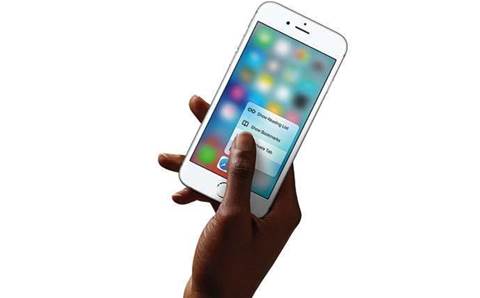A court order demanding that Apple help the US government unlock the encrypted iPhone of one of the San Bernardino shooters opens a new chapter in the legal, political and technological fight pitting law enforcement against civil liberties advocates and major tech companies.
The government argues that the phone is a crucial piece of evidence in investigating one of the worst attacks in the United States by people who sympathised with Islamist militants. But privacy groups warn that forcing companies to crack their own encryption endangers the technical integrity of the Internet and threatens not just the privacy of customers but potentially citizens of any country.
A federal judge in Los Angeles on Tuesday US time ordered Apple to provide "reasonable technical assistance" to investigators seeking to read the data on an iPhone 5C that had been used by Rizwan Farook, who along with his wife, Tashfeen Malik, killed 14 people and wounded 22 others on 2 December in San Bernardino, California.
Both were killed in a shootout with police. The Federal Bureau of Investigation has been investigating the couple's potential communications with Islamic State and other militant groups, and argued that it needs access to the iPhone to find out more.
White House spokesman Josh Earnest said the Department of Justice was asking Apple for access to just one device, a central part of the government's argument, which Apple chief executive officer Tim Cook has said was "simply not true".
Representatives of several other tech companies did not immediately respond to requests for comment on the ruling.
"They are not asking Apple to redesign its product or to create a new backdoor to one of their products," Earnest told reporters at the daily briefing.
In a letter to customers, Cook wrote: "The FBI may use different words to describe this tool, but make no mistake: Building a version of iOS that bypasses security in this way would undeniably create a backdoor. And while the government may argue that its use would be limited to this case, there is no way to guarantee such control."
Most technology security experts, including many who have served in government, say technical efforts to provide government access to encrypted devices inevitably brings in law enforcement. The argument has been made on-and-off since the 1990s, when the government tried and failed to force tech companies to incorporate a special chip into their products for surveillance purposes.
“The government suggests this tool could only be used once, on one phone," Cook said in a statement on Tuesday. "But that’s simply not true. Once created, the technique could be used over and over again, on any number of devices."
If the federal judge, Magistrate Sheri Pym, rejects Apple's arguments, the vendor can appeal her order to the district court, and then up the chain to the 9th US Circuit Court of Appeals in San Francisco and ultimately the US Supreme Court.
The 9th Circuit is known to be pro-privacy. "The government ultimately will have an uphill fight,” said Robert Cattanach, a former Justice Department lawyer who advises companies on cyber security issues.
Farook was assigned the phone by the county health department he worked for, prosecutors said in a court filing on Tuesday US time. The health department had "given its consent" to authorities to search the device and to Apple to assist investigators in that search, the document said.
Next: Apple's 'master key'





.png&h=142&w=230&c=1&s=1)

.jpg&h=142&w=230&c=1&s=1)






.jpg&w=100&c=1&s=0)











